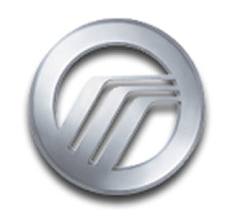Milan FWD V6-3.0L (2010)

6. If the scan tool does not communicate with the vehicle:
-
Verify the ignition key is in the ON position.
-
Verify the scan tool operation with a known good vehicle.
-
Refer to Information Bus to diagnose no response from the PCM.
7. Carry out the network test.
-
If the scan tool responds with no communication for one or more modules, refer to Information Bus.
-
If the network test passes, retrieve and record the continuous memory DTCs.
8. Clear the continuous DTCs and carry out the self-test diagnostics for the SJB.
9. If the DTCs retrieved are related to the concern, refer to Diagnostic Trouble Code (DTC) Chart See: Testing and Inspection. For all other DTCs,
refer to the Diagnostic Trouble Code (DTC) Chart in Body Control Systems. See: Body and Frame/Body Control Systems/Testing and
Inspection/Diagnostic Trouble Code Descriptions/Diagnostic Trouble Code (DTC) Chart
10. If no DTCs related to the concern are retrieved, GO to Symptom Chart. See: Symptom Related Diagnostic Procedures
Principles Of Operation
Stoplamps
Principles of Operation
NOTE: The Smart Junction Box (SJB) is also known as the Generic Electronic Module (GEM).
Fusion
When the brake pedal is applied, voltage is routed to the SJB and the high mounted stoplamp. The SJB then supplies voltage to the rear stoplamps. The
rear stoplamps are combination stop/turn lamps. The turn and hazard lamp functions override the rear stoplamp function.
Milan and MKZ
When the brake pedal is applied, voltage is routed to the high mounted stoplamp, the rear stoplamps and the SJB.
